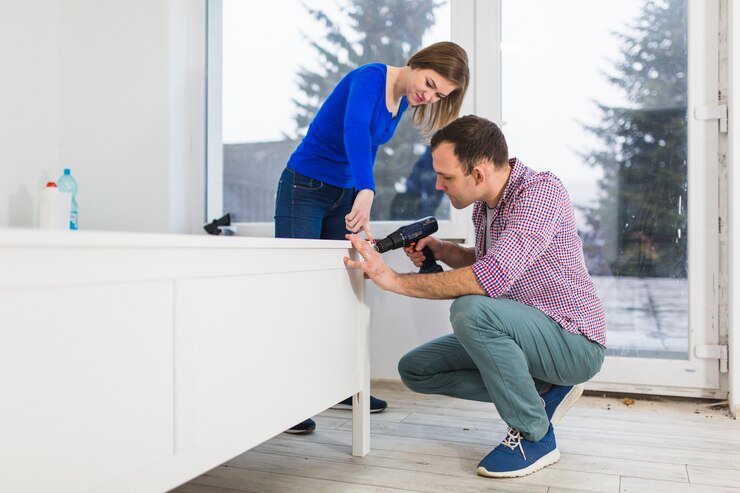Windows are crucial components of any home, providing natural light, ventilation, and insulation while contributing to the aesthetic appeal of your property. However, deciding between repair and replacement can be challenging when windows show signs of wear. While minor issues may warrant simple repairs, more significant problems often necessitate full window replacement. We will explore the differences between these two approaches, their benefits, and how to determine which solution best suits your needs. Understanding when replacement is preferable to repair from Clear Choice Windows & Doors will help you maintain your home’s efficiency, comfort, and value.
Evaluating the Condition of Your Windows
The first step in determining whether to repair or replace your windows is evaluating their current condition. For instance, repairs can often restore functionality and appearance if you notice minor issues like peeling paint, loose weatherstripping, or small cracks in the glass. However, persistent problems such as condensation between panes, drafts, or rotting frames indicate more serious underlying issues. These signs often point to structural damage or aging materials that cannot be adequately addressed through simple fixes.
Older windows, particularly those with single-pane glass or wooden frames, may struggle to meet modern energy efficiency standards. Over time, wooden frames can deteriorate due to moisture, leading to rot and warping, compromising their structural integrity. Similarly, outdated sealing methods may allow drafts, increasing energy bills and reducing indoor comfort. Addressing these issues with repairs might provide temporary relief, but the long-term benefits of replacement often outweigh the short-term savings of minor fixes. Inspecting your windows and consulting reliable contractors can help you identify whether repairs will suffice or if a full replacement is necessary.
The Advantages of Full Window Replacement
When windows suffer from extensive damage or inefficiency, replacing them entirely offers numerous benefits. Modern replacement windows are designed with advanced materials and technologies that enhance energy efficiency, durability, and performance. Double- or triple-pane glass with low-emissivity coatings can significantly reduce heat transfer, keeping your home warmer in winter and cooler in summer. This improved insulation increases comfort and lowers energy costs over time.
Replacement windows also allow homeowners to update their home’s aesthetic appeal. Contemporary designs offer a variety of styles, colors, and finishes that can complement your home’s architecture while providing a fresh look. Beyond aesthetics, new windows can improve security with advanced locking mechanisms and shatter-resistant glass options. Replacement windows with soundproofing features can create a quieter indoor environment for homes in noisy neighborhoods or near busy roads.
While the upfront cost of window replacement can be significant, the long-term savings and enhanced property value often justify the investment. New windows can reduce maintenance requirements, eliminate the need for frequent repairs, and make your home more appealing to potential buyers if you decide to sell in the future. These advantages make full window replacement an attractive option for addressing widespread or recurring window issues.
When Simple Repairs Are the Better Choice
Sometimes, simple repairs can restore your windows’ functionality and appearance. For example, replacing damaged weatherstripping, caulking gaps, or repairing a broken latch can quickly address minor problems without the expense of a full replacement. Similarly, cracked or chipped glass panes can often be replaced individually if the frame remains intact and undamaged.
Repairs are particularly viable for relatively new windows that still meet energy efficiency standards. If your windows are under warranty, repairing specific components may be covered, further reducing costs. Additionally, routine maintenance can extend the lifespan of your windows, delaying the need for replacement. Cleaning and lubricating window tracks, reapplying sealants, and inspecting for signs of wear can help keep your windows in good condition for years.
Environmental and Financial Implications
Choosing between repair and replacement also involves considering each option’s environmental and financial impacts. Repairing windows typically generates less waste, which involves reusing existing materials rather than discarding entire units. This approach aligns with sustainable practices by minimizing landfill contributions and reducing the demand for new resources.
On the other hand, modern replacement windows often come with energy-efficient certifications that can significantly lower your home’s carbon footprint. By reducing energy consumption, these windows help decrease greenhouse gas emissions associated with heating and cooling your home. Over time, the energy savings achieved through replacement can offset the initial environmental impact of manufacturing and installing new windows.
Signs It’s Time for a Full Window Replacement
Certain signs indicate that a full window replacement is necessary. For example, if your windows are difficult to open or close, this could signal warping or frame damage that compromises their functionality. Persistent drafts, condensation between panes, and water damage around the frames are other red flags that repairs may not be sufficient.
Homes with outdated windows often struggle to maintain consistent indoor temperatures, leading to higher energy bills and discomfort. Replacing such windows with energy-efficient models can provide immediate and long-term benefits, including improved insulation and lower heating and cooling costs. Additionally, if your windows have been in place for decades, they may no longer meet modern safety or building code standards, making replacement a practical choice.
Deciding between window repair and replacement requires careful consideration of various factors, including the extent of damage, energy efficiency, and long-term cost implications. While simple repairs can address minor issues, significant problems often require full window replacement. New windows offer enhanced insulation, improved security, and modern aesthetics that can transform your home’s comfort and value.
We have explored how evaluating your windows’ condition, understanding the advantages of replacement, and recognizing the limitations of repairs can guide you toward the right choice. By taking proactive steps and making informed decisions, you can ensure that your windows continue to protect and enhance your home for years to come.
